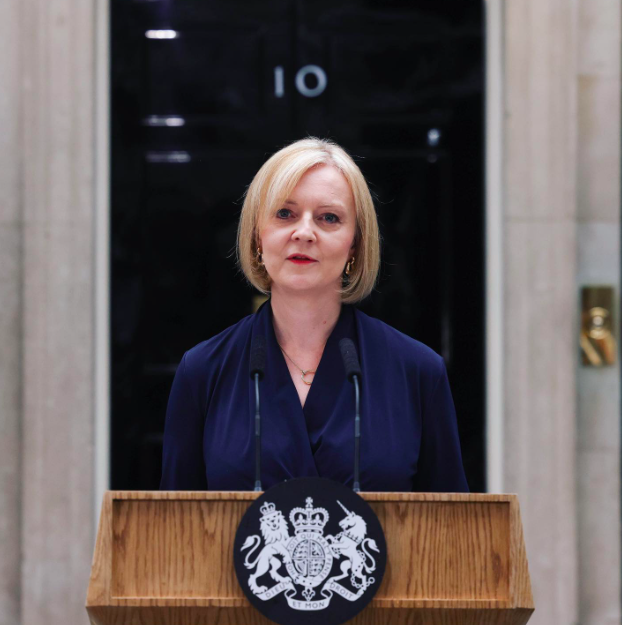Liz Truss resignation ‘adds another level of chaos’ for drinks trade
Drinks industry bodies are calling for a more stable government amid the “chaos and disruption” to the trading landscape caused by the resignation of Prime Minister Liz Truss yesterday.

Yet more bad news has hit the trade this week, as Prime Minister Liz Truss announced that she will be stepping down as Prime Minister in a statement yesterday afternoon, leaving the country in a state of uncertainty.
Truss’s resignation follows news earlier this week that the newly appointed Chancellor Jeremy Hunt has scrapped the freeze on alcohol duty set out by his predecessor Kwasi Kwarteng less than a month prior.
Miles Beale, chief executive of the Wine and Spirit Trade Association (WSTA), said: “On the back of a U-turn on a duty freeze by her second Chancellor, Liz Truss’s resignation adds another level of chaos and disruption to the trading landscape.
“Seeing another PM exit the stage is extremely unhelpful for UK businesses who once again are left in limbo while Conservative politicians fight it out. The wine and spirit sector is desperate for a period of stability in government accompanied by sensible and fair policies which will allow them to recover, invest and grow.”
Emma McClarkin, chief executive of the British Beer and Pub Association (BBPA) has called on government to stabilise “before it’s too late”.
She said: “The PMs resignation has added further uncertainty to an already turbulent time for pubs and brewers, with many looking at the prospect of a very bleak winter as costs continue to spiral and customers tighten their belts even further.
“Businesses need stability and clarity to keep going, but instead have been subject to uncertainty and policy U-turns that will only add to the cost of doing business. We need the Government to stabilise and give our brewers and pubs the confidence and assurance they need to keep serving their communities before it’s too late.”
Partner Content
The statement was published in conjuncture with the PM Liz Truss announcing her resignation yesterday. The three industry bodies said in the statement that “stability” in the industry “has now been shaken, and confidence lost, due to the U-turn announced on Monday”.
Kate Nicholls, CEO of UKHospitality, tweeted following the PM’s statement, calling for a “unified approach from all sides” and a “return to stable leadership and governance to underpin confidence for businesses, workers and consumers”.
We need urgent return to stable leadership and governance to underpin confidence for businesses, workers and consumers. We need a unified approach from all sides to deliver that https://t.co/SiDAKUMg3N
— Kate Nicholls OBE (@UKHospKate) October 20, 2022
The WSTA, SWA and BBPA also called for more support to repair “fragile consumer confidence”.
The statement read: “As organisations representing the UK’s world-class drinks producers, pubs and retailer, we welcomed the duty freeze announced by HM Treasury just 26 days ago. It underpinned the investment our member companies are making across the the UK, supported hundreds of thousands of jobs, and gave our industries stability and confidence at a time of rising energy costs, Covid recovery, supply chain pressures and fragile consumer confidence.”
“It doesn’t have to be this way,” the trade bodies stressed. The statement explained: “Over the past five years, during a stable period for alcohol duty, revenue has increased by 18%. In 2017, the Office for Budget Responsibility forecast that revenue would increase by just 13% over the same period. Despite the challenges of Brexit, punitory tariffs and a global pandemic, our sectors have continues to deliver increased revenue to the Exchequer because of, not despite, duty freezes.”
Related news
Find out the UK’s most affordable cities for food and drink
Majestic pulls some higher ABV wines in wake of duty reforms




